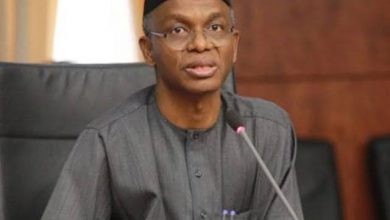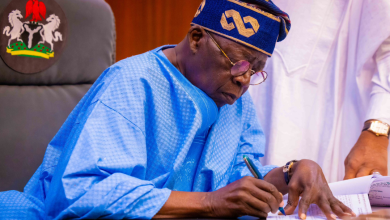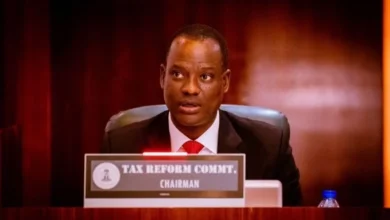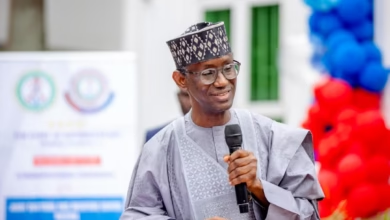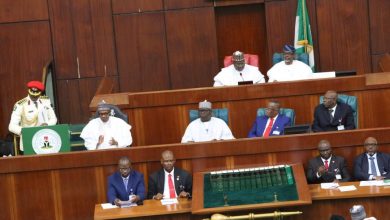Politics
SPECIAL REPORT: Bola Tinubu’s Most Influential Ministers and Their Impact on Nigeria
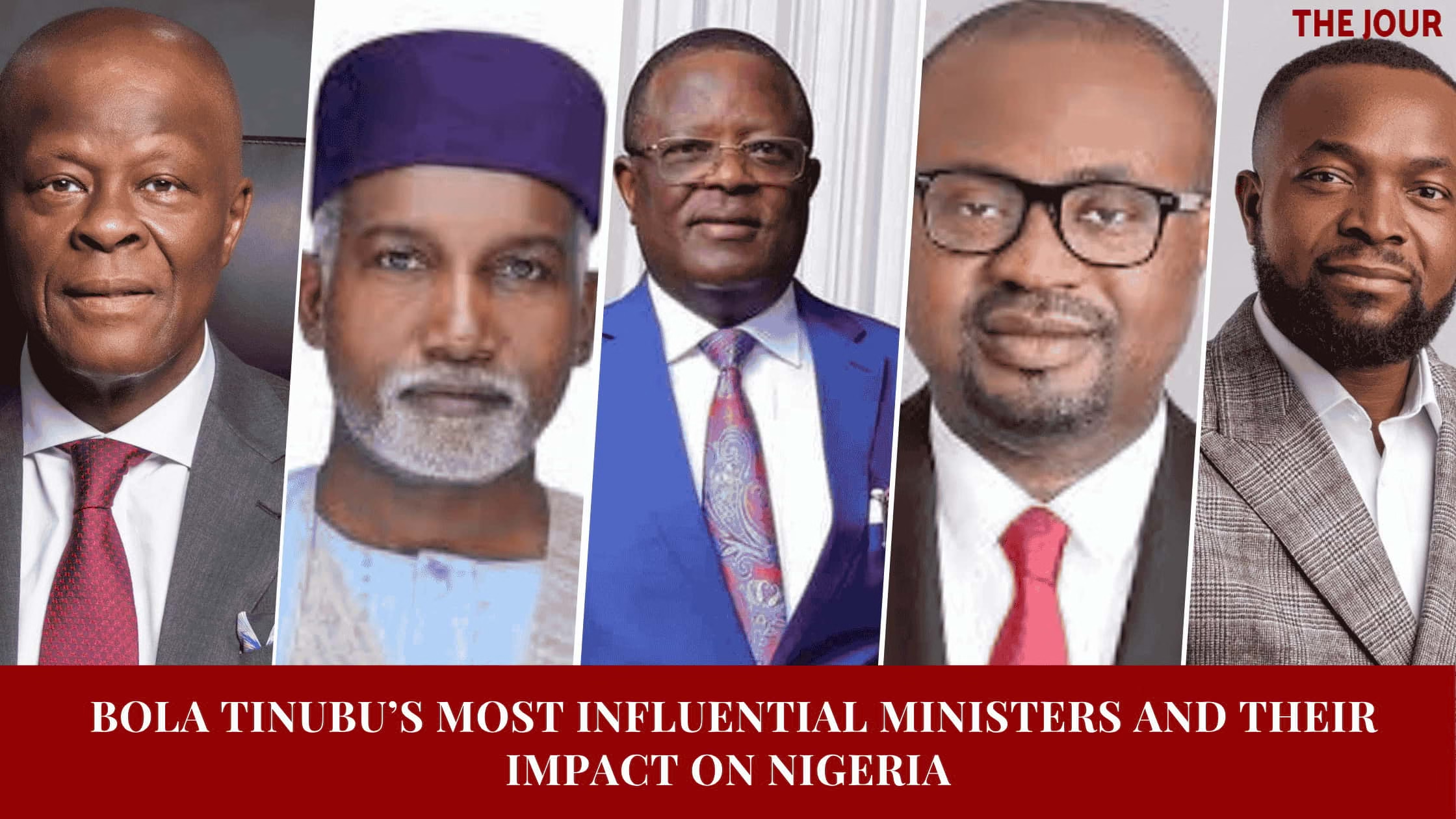
President Bola Tinubu has been very clear about his agenda and vision for the country. To achieve this, he has introduced various policies and reforms and has also removed some ministers and officials who posed a hindrance to these objectives. Despite these changes, a number of key players have made considerable progress across several sectors.
These ministers have successfully implemented transformative initiatives that have yielded measurable results in healthcare, education, technology, and more.
Wale Edun, Minister of Finance
Under the leadership of Wale Edun, Nigeria’s Minister of Finance and Coordinating Minister of the Economy, the country has witnessed a wave of far-reaching reforms aimed at enhancing fiscal governance, strengthening revenue performance, and stimulating sustainable economic growth.
A key highlight of these reforms is the introduction of a new national tax policy focused on streamlining the tax structure, improving compliance and collection efficiency, and promoting a more effective incentive framework. These efforts have contributed to increased revenues from both oil and non-oil sectors, with improved oil production—reaching 1.69 million barrels per day in March 2024—driven by enhanced security in the Niger Delta. Additionally, clearance times for imported goods have reduced, further boosting investor confidence and trade efficiency.
The Ministry of Finance, under Edun’s stewardship, has actively engaged a broad spectrum of international investors, with ongoing discussions expected to yield substantial inflows. The oil and gas sector alone is projected to attract $7 billion in foreign direct investments in the near term.
Another major achievement has been the stabilization of the Naira, which is beginning to decouple from fluctuations in global oil prices. This success stems from the administration’s bold macroeconomic adjustments, including the liberalization of the foreign exchange market—effectively eliminating arbitrage between the official and parallel market rates.
These reforms have helped restore confidence in the macroeconomic environment, leading to an upgrade of Nigeria’s credit outlook by Moody’s and a resurgence in foreign portfolio investments that have strengthened both the bond and equity markets. External reserves have also improved markedly.
In close collaboration with the Central Bank of Nigeria (CBN), Edun’s team has worked to align fiscal and monetary policies, particularly in tackling inflation. These coordinated efforts are underpinned by a strong emphasis on fiscal discipline and strategic revenue optimization.
As a result, the Federal Government generated N6.9 trillion in revenue within the first four months of 2025 alone—a 40% increase over the same period in the previous year. This was achieved through initiatives such as the Revenue Optimization and Assurance Project (REV-OP), designed to plug leakages and enhance transparency in public financial management.
Minister Edun has also championed private sector collaboration as a central pillar of his reform agenda. This includes high-level engagements with stakeholders in the downstream petroleum industry to advance energy market reforms and the transition away from subsidies. Furthermore, the Ministry has facilitated strategic partnerships with impact investors, notably securing a $50 million investment into the Nigeria Wholesale Impact Investment Fund (WIIF)—a fund poised to unlock financing for Micro, Small, and Medium Enterprises (MSMEs) and catalyze job creation.
Overall, Wale Edun’s tenure has been defined by a resolute commitment to building a resilient, diversified, and inclusive economy anchored on transparency, fiscal responsibility, and private-sector-led growth.
Ambassador Yusuf Maitama Tuggar, Minister of Foreign Affairs
The ambassador is not new to public service, as he has worked in a diplomatic capacity for the government. During his time in the Bauchi State constituency, Tuggar played a vital role in shaping procurement policies, petroleum governance, legislative budgeting, and foreign affairs. He served as Nigeria’s ambassador to Germany and accomplished a lot during that period, including the return of Benin artefacts. His ties with Germany also attracted Bruderhilfe Social Development Initiative, a German charity organisation, to donate 90 mobility carts to Bauchi State in April 2020.
His time in office has seen Nigeria engaging more robustly with allies like the USA, China, and ECOWAS. At Chatham House, the ambassador spoke on fostering closer engagements with Nigerians in the diaspora and ensuring their rights are not being infringed upon.
Ambassador Tuggar, has been a central figure in shaping the current administration’s foreign policy, which is anchored on the “4D Doctrine” of Democracy, Development, Diaspora, and Demography. His influential role has led to a more assertive and economically-driven approach to diplomacy, with notable achievements including securing significant foreign investments from countries like India and China, and the successful repatriation of stolen artifacts such as the Benin Bronzes.
Tuggar also advocates for a more equitable global order and the reform of international bodies like the United Nations, while consistently promoting Nigeria’s role as a regional leader in West Africa and a key player in global governance.
During his visit to Chatham House, he made a strong call for the reform of outdated international institutions like the United Nations, arguing they are no longer fit for purpose in the 21st century. He also advocated for a foreign policy of “strategic autonomy,” where Nigeria’s engagement with other nations is guided solely by its national interests rather than external pressures. Tuggar stressed the importance of economic diplomacy, which he said must be anchored in domestic stability to attract foreign investment, and he highlighted how climate change is a significant security concern for the country, particularly in the Lake Chad region.
David Umahi, Minister of Works
David Umahi has emerged as a force in Tinubu’s cabinet, proving that infrastructure can actually be set up. Under his leadership, the Ministry of Works has completed major projects like the rehabilitation of the Third Mainland Bridge and the Apapa-Oworonshoki
Expressway, and kicked off the long-anticipated Lagos-Calabar coastal highway. Although the completion of the Lagos-Calabar expressway is one of the minister’s key successes, he faced a lot of criticism for the N4 billion per kilometer cost of the road and unveiling only 30km after completion. Umahi acknowledged that while some critics consider the N4 billion per kilometer cost of the Coastal Highway expensive, they fail to recognize that it is actually lower than the cost per kilometre of several inherited projects.
Umahi pushed for concrete road technology, which offers durability and long-term savings. He also renegotiated project costs, slashing a staggering N1.19 trillion. To protect workers and assets, Umahi formed a security team made up of retired military personnel. His no-nonsense approach earned public praise from President Tinubu, who hailed him as “diligent and effective” at the Lagos-Calabar highway flag-off.
Olubunmi Tunji-Ojo, Minister of Interior
Olubunmi Tunji-Ojo wasted no time. Within three weeks, he cleared a backlog of 204,332 passport applications. He cut passport processing times to two weeks and introduced doorstep delivery, making life easier for Nigerians at home and abroad.
Beyond immigration, he’s working to decongest prisons by covering fines and compensations for over 4,000 inmates, spending N585 million to do it. His drive hasn’t gone unnoticed. Leadership Newspaper named him “Public Service Person of the Year 2023,” a recognition that reflects both output and impact.
Festus Keyamo, Minister of Aviation and Aerospace Development
Festus Keyamo came in swinging. As a longtime activist and lawyer, he brought that same energy to aviation reform. His biggest win? The resolution of the two-year-long diplomatic freeze with Emirates Airlines, which will resume flights to Nigeria on Oct. 1, 2024.
He also broke the stranglehold of foreign carriers on the UK-Nigeria route, securing Air Peace’s entry. This move slashed ticket prices and made international travel more affordable. At home, he’s cracking down on airport extortion and harassment. Keyamo teamed up with security agencies to clean up Nigerian airports, literally and figuratively.
Despite his many accomplishments, the minister of aviation has faced some criticism during his time in office. Keyamo was accused of monopolizing airlines by showing favoritism to Air Peace while discouraging other airlines like Nigeria Air from flourishing. However, the minister disclosed that the airline was fraudulent and would have been a waste of resources.
For now, Nigerians are hopeful that there will be a change in the aviation sector and await Keyamo’s lead in removing the Dubai visa ban, which has gone on for some time.
Nyesom Wike, Minister of the Federal Capital Territory
Wike brought his fiery Rivers State energy to Abuja. His focus on infrastructure is clear, with key completions like the Abuja-Keffi Expressway and the Inner Southern Expressway. He also launched new projects like the Outer Southern Expressway, rehabilitation of the Abuja-Kaduna Highway, Arterial Road N16, Greater Abuja Water Supply Network, Mabushi bus and taxi terminal, Abuja-Lokoja, Augusta Palace, Nyanya-Karshi dual carriageway, streetlights upgrade on Nnamdi Azikiwe Expressway, CN8, Kugbo bus and taxi terminal, and Inner Northern Expressway.
He also commissioned the renovation of the Abuja International Conference Centre, which cost N39 billion. Critics like Isaac Fayose criticized Wike for using that large amount for the renovation. He described the move as “ego construction” and said the amount spent was unjustifiable, but Wike shut down these claims, saying the critics lacked taste.
In education, he pushed for access and expansion, establishing the Abuja University of Science and Technology and a new Federal Science and Technical College. Wike also ramped up FCT security by installing surveillance systems and deploying more personnel.
Still, Wike’s tenure hasn’t been free from controversy. His public feud with Governor Sim Fubara stirred political tension, but the matter has since been resolved. Critics accuse him of overreach and nepotism, especially with allegations surrounding land allocations linked to his son. However, through it all, Wike remains one of Tinubu’s most vocal and ambitious ministers.
It is interesting that Barrister Wike is one of the most dynamic and successful Ministers of the President Tinubu administration, yet not a member of the All Progressives Congress. Many would say that he needs to make a full transfer–the President needs him in his party, just as much as he needs the President.
Bosun Tijani, Minister of Communications, Innovation and Digital Economy
Bosun Tijani is no stranger to innovation. As a former tech founder, he brought startup speed to the government. His Nigerian Digital Innovation Fund now supports local startups and encourages entrepreneurship. The minister initiated groundbreaking programs, notably the Three Million Technical Talent (3MTT) initiative, which recorded 1.6 million applications within a month.
In collaboration with NITDA, the minister introduced the Startup Support and Engagement Portal, streamlining registration for startups and innovation hubs. Tijani also spearheaded an AI partnership with the I-DICE program. This global partnership is a $116 million financing initiative committed to nurturing innovation and entrepreneurship. The launch of 100 AI jobs by Awarri AI in Lagos marked the commencement of an AI-driven entrepreneurial culture.
From aviation to tech, from infrastructure to justice, President Tinubu’s cabinet includes heavy hitters who are executing reforms. While challenges remain, the performance of these standout ministers shows that competent leadership can make a difference in Nigeria’s future.

